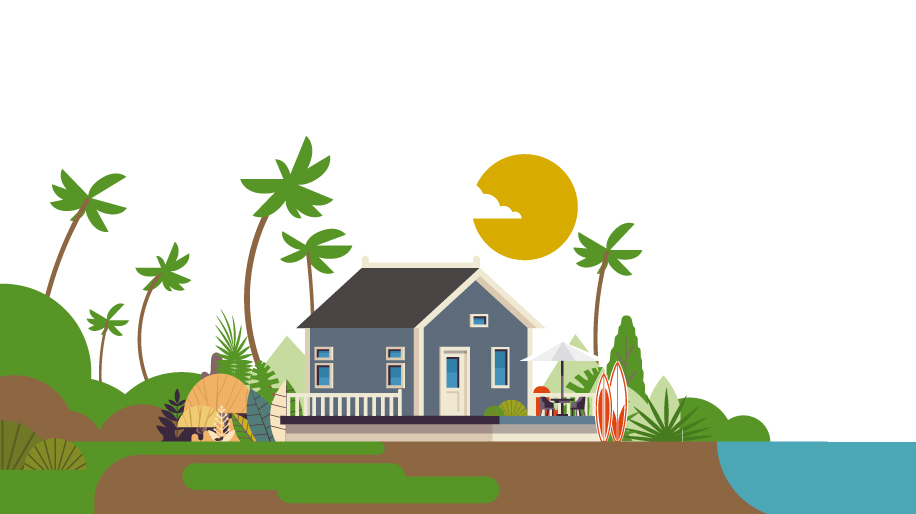Owning property abroad

Owning a property abroad is the dream of many Quebecers who want to escape winter. There are, however, a few details to keep in mind.
Firstly, the purchase must be properly supervised and carried out according to best practices. “It’s essential to work with a real estate specialist on site while ensuring that the person is recommended by a trusted professional in the area. We also recommend always working with a lawyer to guarantee transactions,” explains Patrice Groleau, broker and owner of McGill Real Estate and Engel & Völkers Montréal/Québec/Toronto.
Getting the right insurance
After the purchase comes the issue of maintenance. From that moment on, you need to be able to count on a good manager to take care of this aspect. “Managing a property remotely can be complex, which is why it’s important to have a trusted person on site who can act quickly if necessary. The manager should also have a full list of contacts – professional painters, electricians, etc. – to ensure all work is done efficiently,” says Patrice Groleau.
He believes that buying a condo is often the easiest and safest way to invest abroad, particularly for those looking to minimize day-to-day management. “It’s often the best strategy to get started in international real estate investment,” he adds.
For people who rent out their residence while they are away, he also recommends taking out insurance to cover rental income, particularly in areas prone to natural disasters such as hurricanes. “Following such events, repair times can be considerable and non-resident owners often find themselves at a disadvantage compared to big local players who can quickly mobilize subcontractors. The right insurance helps minimize financial disruption during the rebuilding period and ensure the continuity of rental income,” he says.
Understanding tax obligations
Since taxation has its own local realities, it is a good idea to seek help from professionals in the field. In addition to the obligations in the country where the property was purchased, you will also have to meet those in your country of origin. In this regard, Jean-René Sénéchal, tax expert and partner with Barricad Fiscalistes, reminds us that Canadian tax residents must declare their income from worldwide sources. This is particularly the case when you derive rental income from your foreign property. When filing your income tax return, it is important to remember to complete form T1135 for this purpose. Failure to do so will result in a $2,500 penalty per year, plus interest. In the event of omission, voluntary disclosure can sometimes be taken into account and avoid interest and penalties.
In addition, there may be local taxes on rental income. Does this mean the owner is taxed twice? “In Canada, the owner may benefit from a foreign income tax credit, but a certain amount may still have to be paid,” he warns.
If the property is sold, the capital gain will also be taxed in Canada. “However, the foreign residence could be designated as a principal residence in order to benefit from an exemption. This is relevant if the property has significantly increased in value. Your principal residence can be designated here for a few years and there for a few years. You’ll have to find the formula most advantageous to you,” advises Jean-René Sénéchal. It should be noted that in the U.S., a 15% tax is also deducted at source when a property is sold.
References
This article first appeared in the summer 2024 issue of CSFMag+.